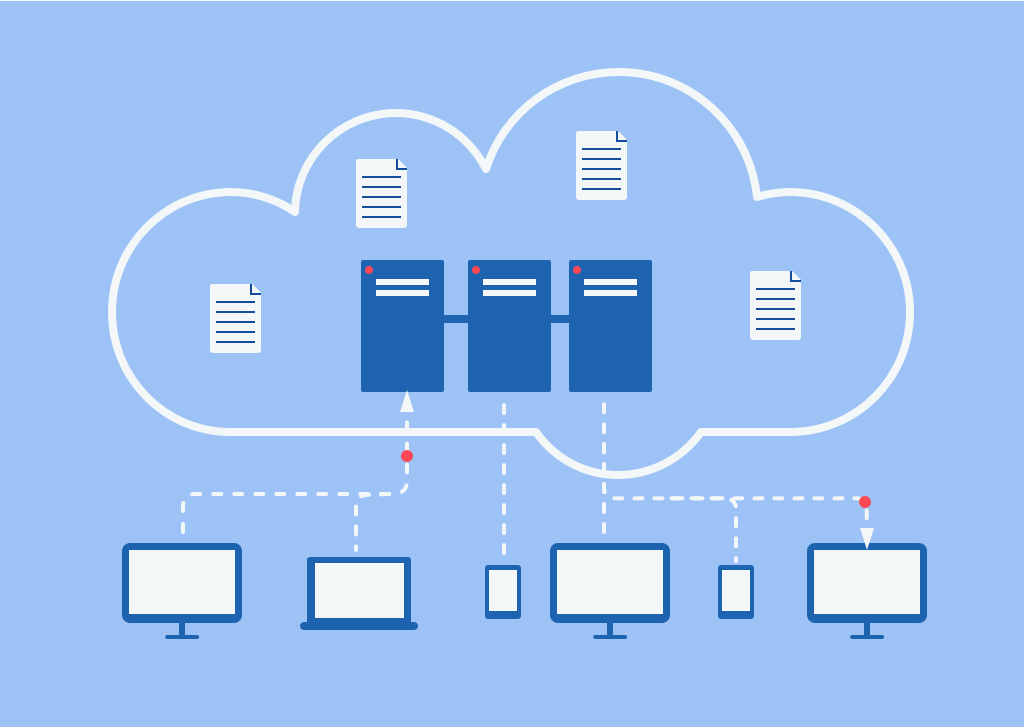Transform Your IT Infrastructure With Universal Cloud Provider
In today's swiftly advancing electronic landscape, the change in the direction of global cloud services has actually become a critical necessary for organizations looking to enhance their IT infrastructure. By exploring the nuanced means in which global cloud services can be customized and integrated, companies can really open their complete potential in attaining digital transformation and affordable advantage in the market.
Advantages of Universal Cloud Solutions
One key advantage is cost-efficiency, as cloud services eliminate the demand for ahead of time investments in equipment and framework. Additionally, cloud solutions offer adaptability and ease of access, enabling employees to gain access to information and applications from anywhere with a web connection.
In addition, global cloud services provide improved safety procedures, with data security, normal backups, and built-in catastrophe recuperation devices. This ensures that business-critical information is protected from potential hazards and breaches. In addition, cloud solutions enable automated updates and upkeep, lowering the burden on inner IT teams and guaranteeing that systems are always current and running efficiently. universal cloud storage press release. Generally, embracing global cloud services can cause raised performance, dexterity, and competitiveness for businesses in today's digital age.
Migration to Cloud Framework
Organizations significantly acknowledge the tactical imperative of transitioning their IT framework to cloud-based services. Migrating to shadow infrastructure deals various advantages, consisting of scalability, cost-efficiency, and increased dexterity. One of the primary reasons firms go with cloud movement is the ability to scale resources up or down based upon varying needs, ensuring ideal efficiency without overprovisioning. Cloud solutions eliminate the demand for significant in advance financial investments in physical equipment, minimizing resources expenditures and allowing companies to pay only for the sources they use.
Another benefit of moving to cloud facilities is the improved agility it offers. Cloud platforms offer fast release of applications and services, making it possible for companies to adapt quickly to market modifications and remain in advance of competitors. Furthermore, the cloud assists in remote accessibility to applications and information, promoting partnership amongst geographically distributed teams.
Enhancing Data Safety Procedures
One critical facet of improving data protection is executing multi-factor authentication (MFA) to add an extra layer of defense past passwords. MFA requires customers to supply two or even more verification elements, such as a password and an unique code sent out to their mobile gadget, before accessing delicate information. This considerably reduces the threat of unapproved gain access to, even if passwords are endangered.
Additionally, organizations need to regularly carry out safety and security audits and vulnerability evaluations to recognize and deal with possible weak points in their information safety and security framework - universal cloud storage Service. By staying aggressive and constantly boosting data safety and security actions, organizations can successfully minimize threats and safeguard their beneficial information possessions in a significantly digital globe
Implementing Cloud-Based Applications
In adapting to contemporary technical developments, companies are increasingly leveraging cloud-based applications to optimize their operations and improve efficiency. Cloud-based applications here use an array of advantages, consisting of scalability, flexibility, and cost-effectiveness. By executing cloud-based applications, services can streamline processes, improve collaboration among teams, and improve overall efficiency.

Furthermore, carrying out cloud-based applications can lead to better information administration and security. These applications generally have built-in security features and provide information security to secure delicate details. This can aid companies abide with information defense guidelines and mitigate the danger of information violations. Overall, embracing cloud-based applications can change just how companies operate, driving innovation and competitiveness in today's electronic landscape.
Optimizing Cost-Efficiency
To achieve optimal cost-efficiency in leveraging cloud-based applications, companies need to purposefully try this site evaluate their resource allowance and utilization. One vital approach for optimizing cost-efficiency is to adopt a pay-as-you-go model, where companies just pay for the services and sources they make use of. This flexibility enables cost savings by removing the requirement to spend in costly infrastructure that might not be fully utilized.
Routine tracking and optimization of cloud sources are important for determining locations where cost-savings can be accomplished. By analyzing use patterns and efficiency metrics, companies can make enlightened decisions about resource allocation and additional streamline their procedures to optimize cost-efficiency in the cloud.
Final Thought
In verdict, global cloud solutions provide many benefits such as cost-efficiency, adaptability, improved security steps, and automated updates. Migrating to shadow facilities makes it possible for organizations to utilize scalability, cost-efficiency, and dexterity to stay competitive.
Additionally, cloud solutions provide adaptability and access, making it possible for workers to weblink gain access to data and applications from anywhere with a web link.In addition, universal cloud solutions use enhanced protection measures, with data file encryption, routine backups, and built-in disaster recuperation systems. Cloud systems provide rapid implementation of applications and solutions, enabling services to adjust promptly to market changes and remain ahead of competitors. In addition, the cloud helps with remote accessibility to data and applications, cultivating collaboration among geographically distributed teams.
In final thought, universal cloud solutions supply many benefits such as cost-efficiency, flexibility, enhanced security steps, and automated updates.